Firefly BioWorks announced today the awarding of $120,000 in twelve research grants to scientists working to expand the frontiers of microRNA research. The Firefly Frontiers Grant is designed for scientists looking to profile large numbers of samples over multiple microRNA targets.
Apr 17th, 2013
Read more
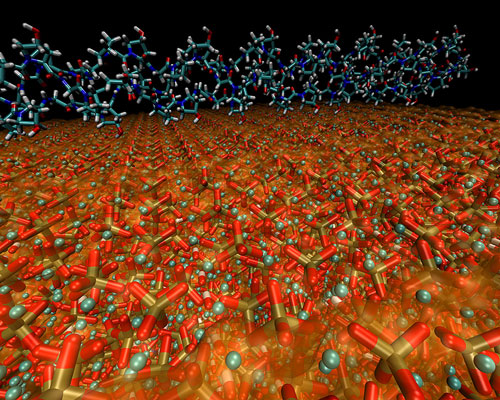 MIT researchers decipher the molecular basis of bone's remarkable strength and resiliency; work could lead to new treatments and materials.
MIT researchers decipher the molecular basis of bone's remarkable strength and resiliency; work could lead to new treatments and materials.
Apr 17th, 2013
Read more
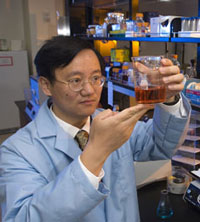 A team of Virginia Tech researchers has succeeded in transforming cellulose into starch, a process that has the potential to provide a previously untapped nutrient source from plants not traditionally thought of as food crops.
A team of Virginia Tech researchers has succeeded in transforming cellulose into starch, a process that has the potential to provide a previously untapped nutrient source from plants not traditionally thought of as food crops.
Apr 16th, 2013
Read more
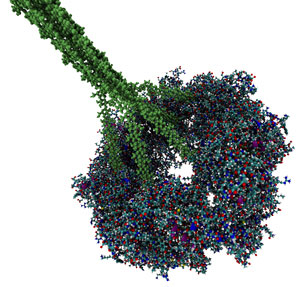 3-D model provides structure of material that provides plant structure
3-D model provides structure of material that provides plant structure
Apr 16th, 2013
Read more
Scientists at CWRU School of Medicine discover new technique that holds promise for the treatment of multiple sclerosis and cerebral palsy.
Apr 14th, 2013
Read more
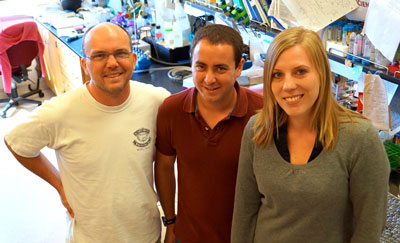 There's an epic battle taking place that's not on the national radar: intercellular competition. While it's not an Olympic event, new research from UC Santa Barbara demonstrates that this microscopic rivalry can be just as fierce as humans going for the gold.
There's an epic battle taking place that's not on the national radar: intercellular competition. While it's not an Olympic event, new research from UC Santa Barbara demonstrates that this microscopic rivalry can be just as fierce as humans going for the gold.
Apr 12th, 2013
Read more
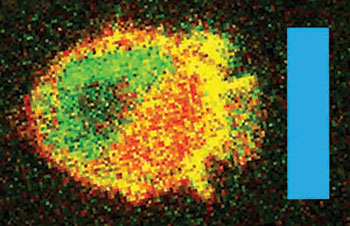 Scientists at Washington University School of Medicine in St. Louis have shown they can coax cells to move toward a beam of light. The feat is a first step toward manipulating cells to control insulin secretion or heart rate using light.
Scientists at Washington University School of Medicine in St. Louis have shown they can coax cells to move toward a beam of light. The feat is a first step toward manipulating cells to control insulin secretion or heart rate using light.
Apr 11th, 2013
Read more
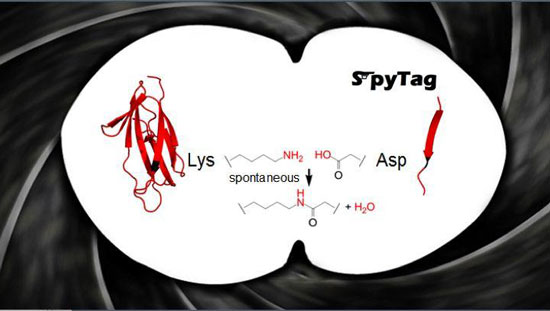 In a classic case of turning an enemy into a friend, scientists have engineered a protein from flesh-eating bacteria to act as a molecular 'superglue' that promises to become a disease fighter.
In a classic case of turning an enemy into a friend, scientists have engineered a protein from flesh-eating bacteria to act as a molecular 'superglue' that promises to become a disease fighter.
Apr 11th, 2013
Read more
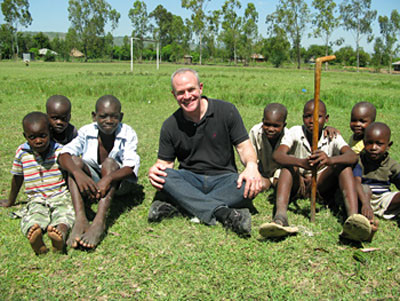 Twelve years after a breakthrough discovery in his University of California, Berkeley, laboratory, professor of chemical engineering Jay Keasling is seeing his dream come true.
Twelve years after a breakthrough discovery in his University of California, Berkeley, laboratory, professor of chemical engineering Jay Keasling is seeing his dream come true.
Apr 11th, 2013
Read more
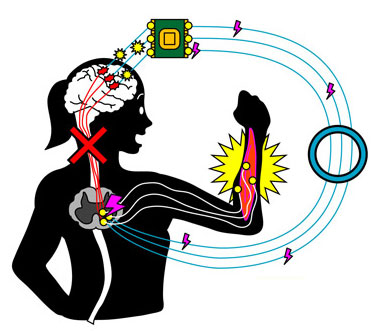 Scientists investigated the effects of introducing a novel artificial neural connection which bridged a spinal cord lesion in a paretic monkey. This allowed the monkey to electrically stimulate the spinal cord through volitionally controlled brain activity and thereby to restore volitional control of the paretic hand.
Scientists investigated the effects of introducing a novel artificial neural connection which bridged a spinal cord lesion in a paretic monkey. This allowed the monkey to electrically stimulate the spinal cord through volitionally controlled brain activity and thereby to restore volitional control of the paretic hand.
Apr 11th, 2013
Read more
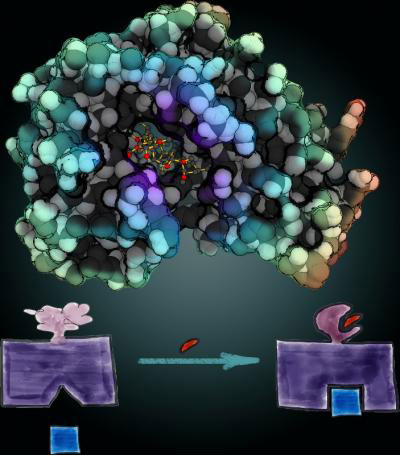 Researchers at the University of North Carolina at Chapel Hill School of Medicine have 'rationally rewired' some of the cell's smallest components to create proteins that can be switched on or off by command. These 'protein switches' can be used to interrogate the inner workings of each cell, helping scientists uncover the molecular mechanisms of human health and disease.
Researchers at the University of North Carolina at Chapel Hill School of Medicine have 'rationally rewired' some of the cell's smallest components to create proteins that can be switched on or off by command. These 'protein switches' can be used to interrogate the inner workings of each cell, helping scientists uncover the molecular mechanisms of human health and disease.
Apr 10th, 2013
Read more
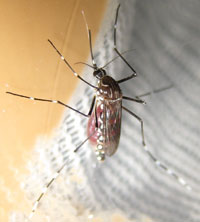 Scientists have revealed a new technique to introduce disease-blocking bacteria into mosquitoes, with promising results that may halt the spread of diseases such as dengue, yellow fever and potentially malaria.
Scientists have revealed a new technique to introduce disease-blocking bacteria into mosquitoes, with promising results that may halt the spread of diseases such as dengue, yellow fever and potentially malaria.
Apr 10th, 2013
Read more
 CResearchers Find Way to Catalyze More Sugars from Biomass.
CResearchers Find Way to Catalyze More Sugars from Biomass.
Apr 7th, 2013
Read more
The accomplishment provides a much-needed resource for scientists eager to uncover the true mechanisms of human stem cell biology. It also enables them to explore new tactics to treat inflammatory bowel disease or to ameliorate the side effects of chemotherapy and radiation, which often damage the gut.
Apr 5th, 2013
Read more
One of the major obstacles to growing new organs _ replacement hearts, lungs and kidneys _ is the difficulty researchers face in building blood vessels that keep the tissues alive, but new findings from the University of Michigan could help overcome this roadblock.
Apr 4th, 2013
Read more
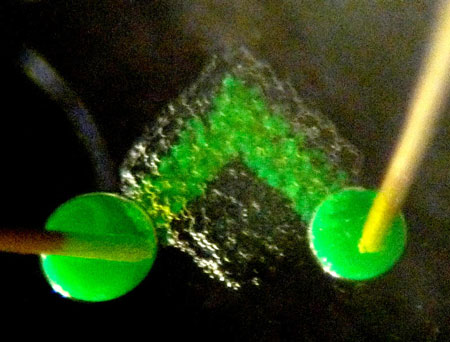 A custom-built programmable 3D printer can create materials with several of the properties of living tissues, Oxford University scientists have demonstrated.
A custom-built programmable 3D printer can create materials with several of the properties of living tissues, Oxford University scientists have demonstrated.
Apr 4th, 2013
Read more
Scientists are reporting an advance in re-engineering photosynthesis to transform plants into bio-factories that manufacture high-value ingredients for medicines, fabrics, fuels and other products.
Apr 4th, 2013
Read more
Treating patients with cells may one day become as common as it is now to treat the sick with drugs made from engineered proteins, antibodies or smaller chemicals, according to UC San Francisco researchers.
Apr 3rd, 2013
Read more

 Subscribe to our Biotechnology News feed
Subscribe to our Biotechnology News feed










